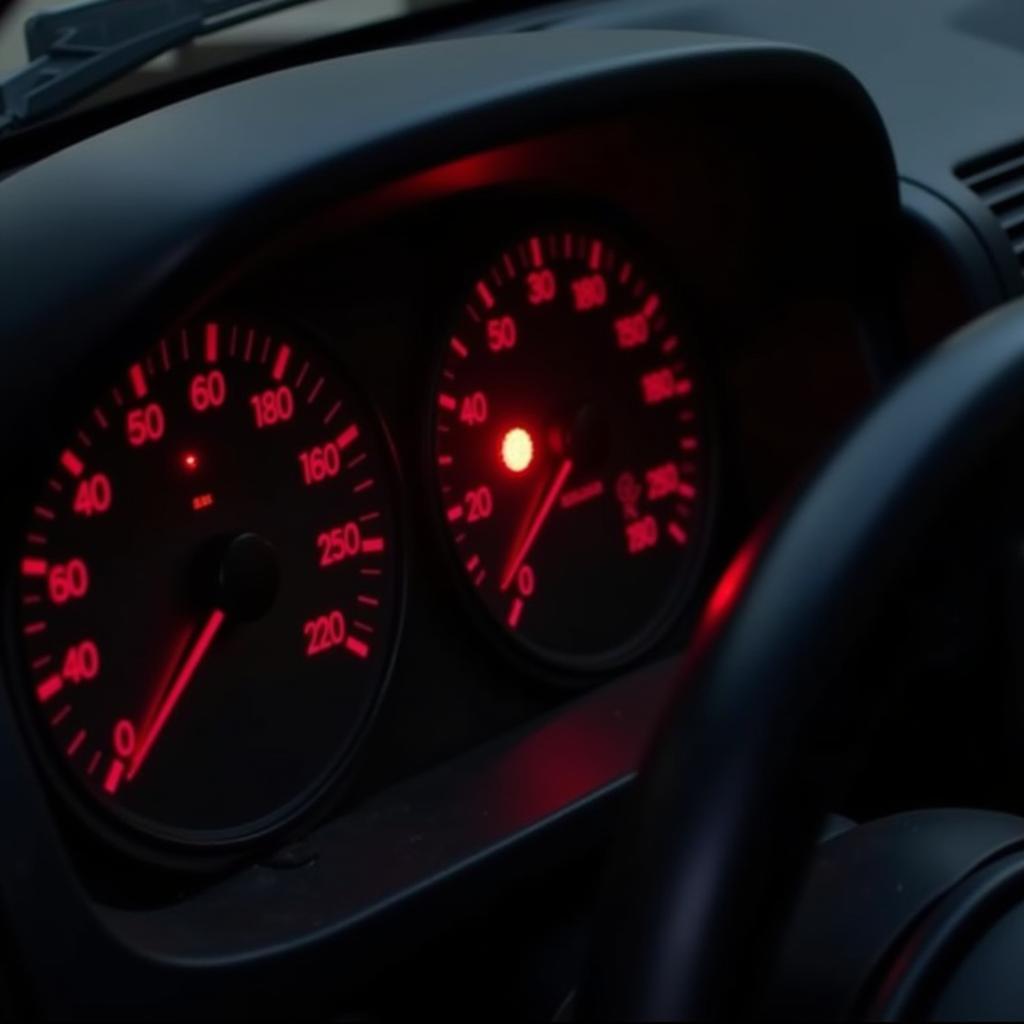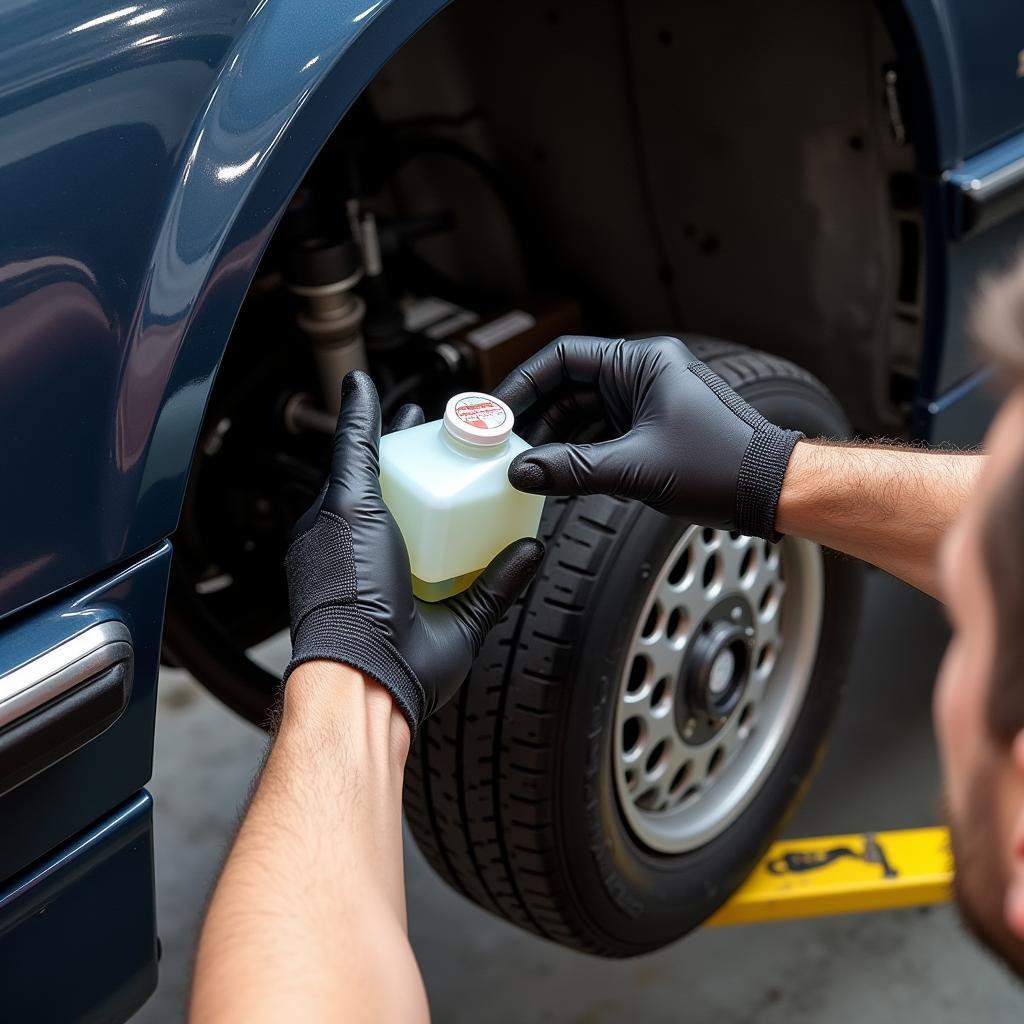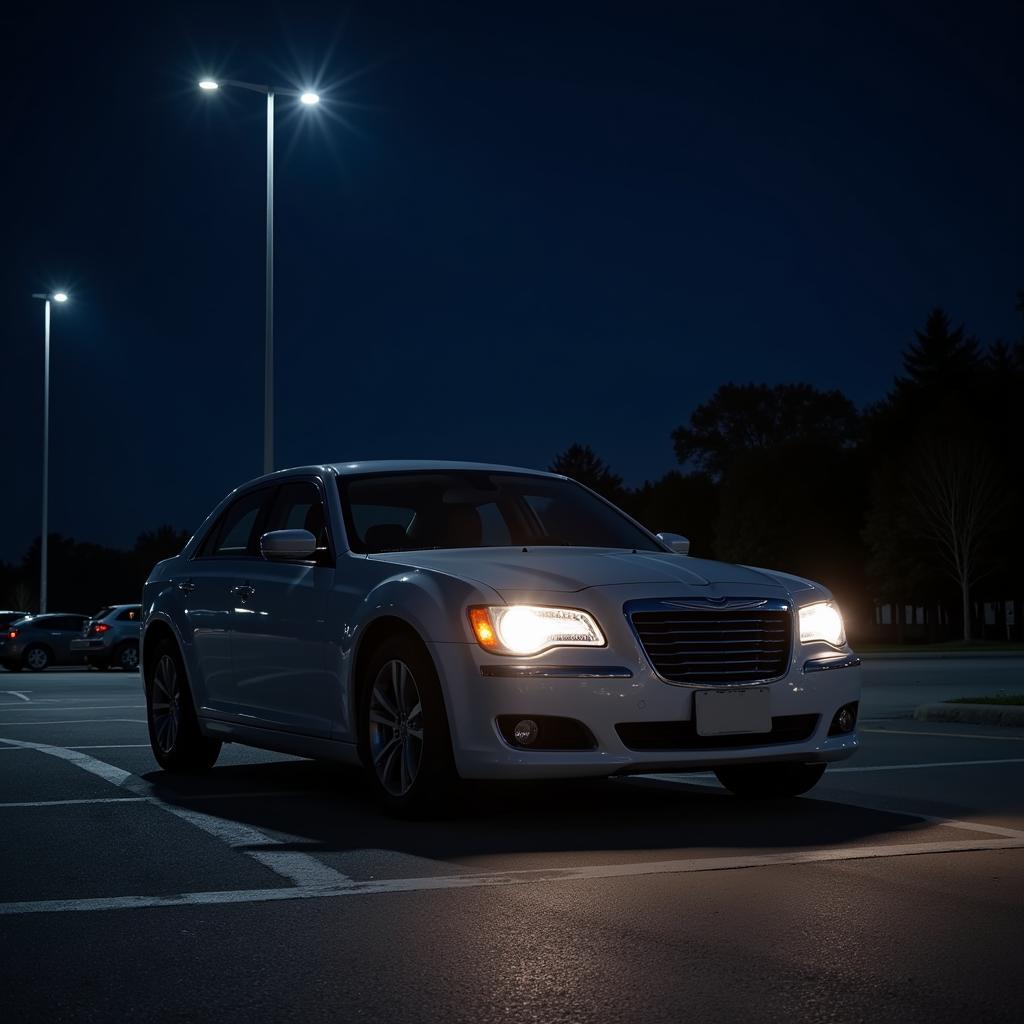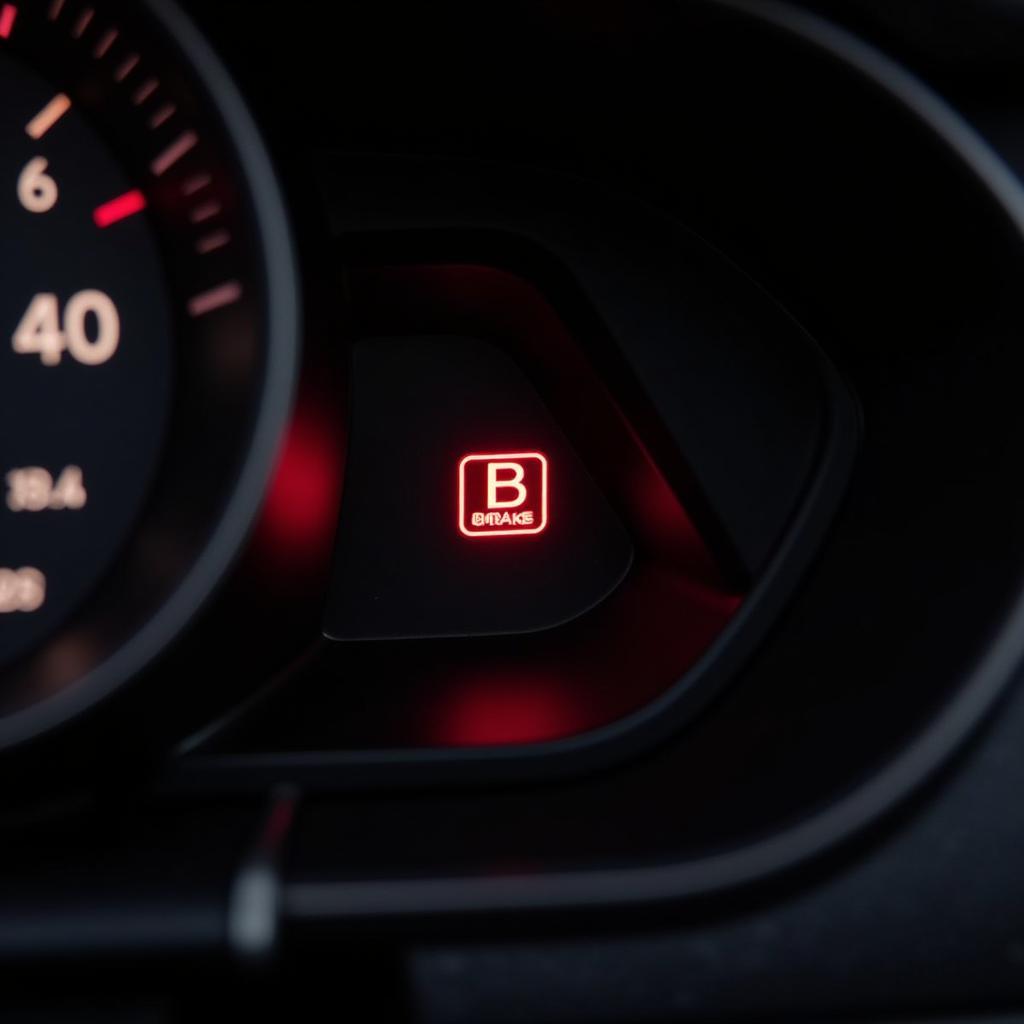The BMW E30, a true icon, is renowned for its classic design and exhilarating performance. However, even these automotive legends can experience the occasional hiccup. One common issue that E30 owners might encounter is the dreaded brake warning light illuminating on the overhead panel. This article will delve into the potential causes behind this warning light and provide a comprehensive guide to help you troubleshoot and resolve the issue.
Understanding Your E30’s Brake Warning System
Before we jump into the diagnostics, it’s essential to understand how the E30’s brake warning system operates. The system is designed to alert you of potential issues with your braking system, ensuring your safety and that of others on the road. The brake warning light on your E30’s overhead panel can be triggered by several factors, and it’s crucial to address them promptly.
Common Causes of a BMW E30 Brake Warning Light
1. Worn Brake Pads
This is the most frequent culprit behind the illuminated brake warning light. As you drive, your brake pads naturally wear down. The E30 is equipped with a wear sensor that triggers the warning light when the pads reach a certain thickness, indicating the need for replacement.
2. Low Brake Fluid Level
Your E30’s braking system relies on hydraulic pressure to function correctly. If the brake fluid level drops below a certain point, it can disrupt this pressure and trigger the warning light. Several factors can lead to low brake fluid levels, including leaks in the system or worn brake components.
3. Faulty Brake Fluid Reservoir Sensor
Your E30 has a sensor in the brake fluid reservoir that monitors the fluid level. If this sensor malfunctions, it can send a false signal, causing the warning light to illuminate even if the brake fluid level is adequate.
4. Issues with the Parking Brake
The brake warning light is also linked to your parking brake. If the parking brake is not fully released or there’s an issue with the switch, it can trigger the warning light.
5. ABS System Malfunction
While less common in the E30 compared to newer models with more sophisticated electronics, a malfunctioning ABS (Anti-lock Braking System) can also trigger the brake warning light.
 BMW E30 Brake Warning Light on Dashboard
BMW E30 Brake Warning Light on Dashboard
Troubleshooting the Brake Warning Light
Now that we’ve covered the common causes, let’s look at how you can troubleshoot the issue:
-
Check the Brake Fluid Level: This should be your first step. Locate the brake fluid reservoir under the hood and check the fluid level. If it’s below the minimum mark, add the appropriate brake fluid, ensuring it meets the specifications outlined in your owner’s manual.
-
Inspect the Brake Pads: If topping up the brake fluid doesn’t resolve the issue, it’s time to inspect the brake pads. If you’re not comfortable doing this yourself, any qualified mechanic can easily handle this task.
-
Examine the Brake Lines: Thoroughly check all visible brake lines for any signs of leaks, cracks, or damage. Pay close attention to the areas around the calipers and connections.
-
Inspect the Parking Brake: Ensure your parking brake is fully released. If the light remains on, there might be a problem with the parking brake switch.
-
Check the Brake Fluid Reservoir Sensor: If the brake fluid level is adequate and the other components seem fine, the reservoir sensor might be faulty. You can test the sensor or have a mechanic check it for proper functionality.
 Checking BMW E30 Brake Fluid
Checking BMW E30 Brake Fluid
Seeking Professional Help
If you’ve gone through these troubleshooting steps and the brake warning light persists, it’s strongly recommended to seek professional assistance.
“Remember, brakes are critical to your safety. Never ignore a brake warning light. Addressing the issue promptly ensures your safety and prevents potential accidents,” advises Jake Carter, a seasoned automotive technician with over 20 years of experience working on BMWs.
Preventing Future Issues
Prevention is always better than cure. Here are some tips to keep your E30’s brakes in optimal condition:
- Regular Brake Inspections: Schedule routine brake inspections with a qualified mechanic, especially if you frequently drive in demanding conditions.
- Timely Fluid Flushes: Brake fluid can deteriorate over time. Consult your owner’s manual for the recommended brake fluid flush intervals.
- Quality Parts: When replacing brake components, always opt for high-quality parts from reputable manufacturers.
Conclusion
The brake warning light on your BMW E30 is a crucial safety feature, and ignoring it can have serious consequences. By understanding the potential causes and following the troubleshooting steps outlined in this article, you can effectively address the issue and keep your E30 running smoothly. If you’re ever in doubt, don’t hesitate to consult a professional mechanic. Remember, safety always comes first!



